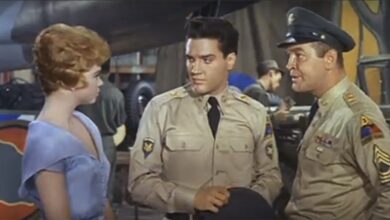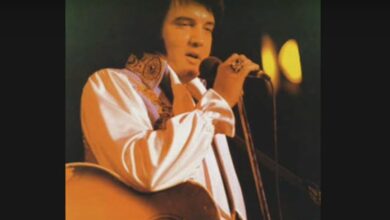Even after 60 years, this classic stands above today’s music. No one can match Elvis
Elvis Presley’s rendition of “Return to Sender” is emblematic of his infectious rock and roll style that captivated audiences in the early 1960s. Released in 1962, the song was penned by Winfield Scott and Otis Blackwell, who also contributed to several other hits in Presley’s repertoire. With its catchy melody and upbeat tempo, “Return to Sender” showcases Presley’s dynamic vocals and charismatic delivery, making it a standout in his discography.
The song’s narrative unfolds with a playful yet cautionary tale: a man receives a letter from an ex-girlfriend he had wronged, only to find it marked “Return to Sender” due to his failure to provide a forwarding address. This storyline resonated widely, tapping into themes of regret and the consequences of thoughtless actions. Presley’s interpretation infuses the lyrics with a blend of youthful exuberance and mature reflection, capturing both the whimsicality and underlying moral lesson of the song.
Commercially, “Return to Sender” was a significant success for Presley, peaking at the top 5 on the Billboard Hot 100 chart in the United States and enjoying similar chart success internationally. Its popularity extended beyond its initial release, with numerous artists across different genres covering the song over the years, underscoring its enduring appeal and influence in popular music.
Elvis Presley’s career was marked by his ability to seamlessly navigate various musical styles, from rock and roll to gospel, country, and ballads. Born in 1935 in Tupelo, Mississippi, Presley rose to fame in the mid-1950s with a string of hits that revolutionized the music industry and solidified his status as a cultural icon. His charisma, distinctive voice, and magnetic stage presence made him a global sensation, often referred to as the King of Rock ‘n’ Roll.
Beyond his musical accomplishments, Presley’s impact extended into film, where he starred in a series of popular movies throughout the 1960s. Despite his meteoric rise to fame, Presley faced challenges in balancing his personal life with the demands of celebrity. His relationship with fame and fortune was complex, marked by periods of intense creativity and personal introspection.
Throughout the 1960s, Presley continued to dominate the charts with hits like “Can’t Help Falling in Love,” “Suspicious Minds,” and “In the Ghetto,” showcasing his versatility and enduring appeal across different musical genres. His performances, both live and recorded, were characterized by a blend of passion and technical prowess that resonated deeply with audiences worldwide.
Tragically, Elvis Presley passed away in 1977 at the age of 42, leaving behind a legacy that continues to influence generations of musicians and fans alike. His contributions to rock ‘n’ roll and popular culture remain unparalleled, with his songs and performances remaining timeless classics that evoke nostalgia and admiration.
In conclusion, Elvis Presley’s rendition of “Return to Sender” exemplifies his ability to deliver compelling narratives through music, combining catchy melodies with insightful lyrics that resonate with listeners on both a personal and universal level. As a pioneer of rock ‘n’ roll and a cultural icon, Presley’s influence extends far beyond his music, shaping the landscape of popular culture for decades to come. His legacy as the King of Rock ‘n’ Roll endures, ensuring that his contributions to music and entertainment will be cherished and celebrated for generations to come.



